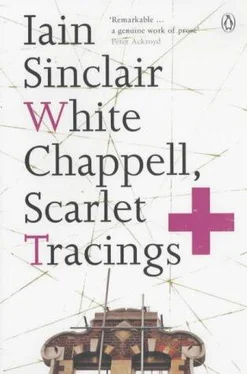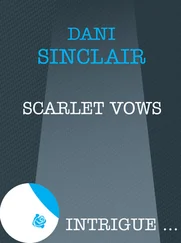Best,
Doug
Here comes the fork, and it is a simple thing to understand — that there can be no mixing of book-buying with the true work. You can believe it but not, necessarily, be able to live by it. So that if I am drawn again to Thorpe-le-Soken, I will stop at the Keep Bookshop, Colchester.
The place has many disadvantages, most of them behind the counter, but still remains a favourite. It’s on a hill, the town begins here; it’s old, leaking, has odd corners — but principally it has more back rooms, locked drawers, secrets than it has shelf space. It does the business. The books will come: but you may not be able to dig them out.
I searched fast, ineffective as a dealer, flinching from the technical exercise of finding items I could sell; books that were, in essence, already sold and just waiting to be gathered and delivered. There are no intrinsic values: absolutely anything becomes valuable if there is a customer for it. That’s all you’ve got to learn: custodial purchases.
In an upstairs chamber, where psychology shades into perversion, I found a copy, in well-tanned blue cloth, of James Hinton, A Sketch by Mrs Havelock Ellis; with preface by Havelock Ellis, photogravure frontispiece, seven illustrations; First Edition, 1918. It was described on the flyleaf as ‘Scarce’, which justified the asking price of £4. That was too high for me, I put it back. Who else had ever heard of Hinton? Most people thought he was his own son. I simply couldn’t imagine what had lifted it out of the £2 class — not, then, making the connection with that no-man’s land where doubtful philosophical effusions meet with vegetarianism, where theology edges nervously into sadism: an area that seemed to include Edward Carpenter and Nietzsche.
I’d made the ‘accidental’ discovery of Hinton in the Whitechapel Library one day when the gallery was closed and it was raining. He’d keep.
I turned from the shelf to discover Douglas Oliver, the poet, on his knees, a long black coat, not praying but picking through the Latins. He considers a negotiation for nine or ten volumes, but settles for a drink in the Tudor Room of the Marquis of Granby. A place that needs an intercity train to be re-routed through it.
Of course, I couldn’t, or least I didn’t, justify my failure to reply to his long and generous letter. I felt that the letter was self-sufficient, its time would come: there was nothing at all I could add to it. If I had in some way provoked the letter — that was enough. I absolutely would not ‘defend’ any position he found that I had occupied. Any kind of ‘literary’ exchange would be doomed before it began. My correspondence had formalised to exchanges of insults on the backs of bills. The nerve-ends that Doug’s letter touched are still twitching, and not to be exposed.
This was not the guilt of pursuing a mindless and deranged career, of not opening the writing out, wholly, to the light, shaping it with a precision of trust: what then?
The coincidence of contraries. The meshing and damaging contact of that which is not quite the same. The third mind was not present at this meeting. His direction was not to be made clear to me. Nor mine to him.
He was also a disenfranchised Scotsman.
I returned to the bookshop. Bought the Hinton. Walked away up the hill, sun on the stones: old mustard. Day of leaf and bud. I abandoned the other shops and cut directly down into the park beneath the castle.
A ring of children, with watery unlined faces, ran about on the grass, staggering and tumbling. Their keeper was only partly attending to them, listening instead to a history of the walls. The children circled, bumping into each other, their arms out.
One of the girls came over to me, held out her hand, hopeful that I would take her to the swings. There is no fear in these children. They have no shadow of the future to chill their milky eyes. They are without harm.
The letter could go no further, ‘ Dear Hardie ’; his skull resting on his hand like a globe of solid glass. Different, unable to make a start: Lees’ breath crawled onto the window. He twitched in his clothes. He scratched at his head. He swept aside the blank sheet of paper, took up a book, a paperknife; hacking at the uncut pages.
A line broken by the entry of a court; and just at that point, a certain sinister block building thrust forward its gable onto the street. Audible houses, tenements, vague and sheeted; prolonged and sordid negligence. He was looking at the back of the world. Life was removed.
The awful rushing sensation was on him, getting ahead of event, knowing ; a dull inevitability. His pride breathes it, lets go, takes it up. Allows the moist heat to form pictures. A woman, churn-shaped; a man, following. The detail floats in from borrowed dreams.
He wipes the glass with the back of his sleeve. Breathes. The picture forms once more.
Suit of scotch tweed, light overcoat, gladstone bag. Crossing towards the lights of a Restaurant. There is a clock on the side of the Blackmail House. A time to be noted. Flare of naphtha. Men drinking.
The howl of a dog. Through the passageway and into the courtyard. He is hard by the door. Knife drawn, a backhanded slash.
It is my duty. The ghost of some old sin, some concealed disgrace: punishment coming. They are led to the doors of the house. The servants all asleep. No windows. Shriek: murder!
So the report is made. What has not been seen is made rational. A time is given to the face of the clock. Lees speaks his fear to authority. The murder is described, taken down, put on file.
The murder occurs and follows his scenario. Is his the only prophecy? There are hundreds; in blood and ink, not codding dear old Boss; typed, pencilled, slated, dribbled over, soaked in semen. Mr Lusk. Everything is foretold. What follows is a pale reflection.
‘ That is the man who cut off her ears!’ Robert Lees: pointing from the upper deck of an omnibus at Shepherd’s Bush. His wife smiling. ‘That is the Ripper, the Harlot Killer.’ He is wearing tweeds that belong in a story. He is carrying a light overcoat.
It should be night. It should be another place. There is no blood. Follow the man through the mists. An imposing mansion. There seemed to be some magnetic wave connecting an impalpable sense he possessed with the fugitive. Buckled to the red stuff, t’otherest governor.
But there is no fugitive, no one is accused. An ear in the hand, the prasarved Kidne upon his plate. Drops his fork; I see her face. She is whispering, I cannot tell what she is whispering to me. It is a name at least well known, a name that I cannot mention.
My wife is smiling. ‘Robert, the absurdity! You make yourself ridiculous. Following perfectly respectable gentlemen about the West End of London! Dodging among hansom cabs like a street-arab!’
Not Cavendish Square, Brook Street. The Juwes are The men that Will not be Blamed for nothing. Walls, doorways. A plaster rose in relief. You must listen to me, Inspector.
I have seen a woman turned inside out. A room decorated with her entrails. The room is scarlet; it is sweating. A woman’s voice singing. The smell of violets, left too long in water. They have the talisman. I cannot tell. Carried off or destroyed.
Robert Lees comes up from the Criterion; he had been dining with two Americans. Unconvinced voyant , the Inspector dogging his heels; he is barking like a Plains Indian, coyote throat, a time to believe nothing, to cultivate all the fictions. Stamping at the door, his back turned, not looking upon the slaughter, Millers Court, the final act. Demented Lees, responsible, implicated, some magnetic wave connecting him: he leads them, in a seizure — it will make a good story — not directly, circuitously, getting warmer, Boss.
Читать дальше












